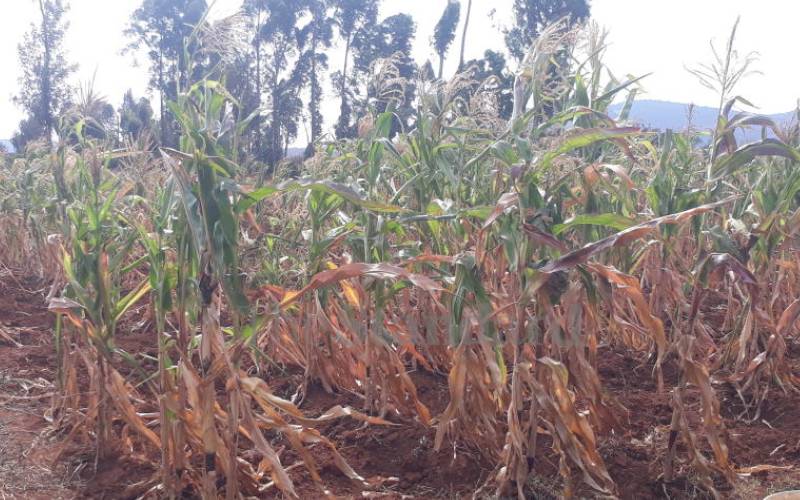×
The Standard e-Paper
Join Thousands Daily

Withering maize at a farm in Umande Ward, Laikipia County. Rain failed in most parts of the county in 2021. [Boniface Gikandi, Standard]
Climate change is the most important issue of our time, and it is unfolding faster than we anticipated.







